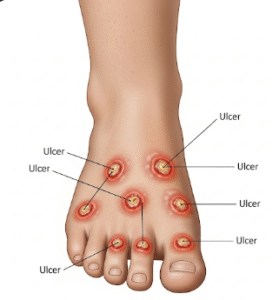Overview
Cold agglutinin disease (CAD) is a rare autoimmune disorder in which the body produces antibodies that attack red blood cells at low temperatures, causing them to clump together (agglutinate) and break down (hemolysis). This can lead to anemia and other complications. In Korea, hematology centers and specialized hospitals provide accurate diagnosis, treatment, and ongoing management for patients with CAD.
What is Cold Agglutinin Disease?
Cold agglutinin disease is a type of autoimmune hemolytic anemia triggered by cold temperatures. The immune system produces cold-sensitive antibodies (usually IgM) that bind to red blood cells in cooler parts of the body, causing destruction of the red blood cells and leading to hemolytic anemia. CAD can be primary (idiopathic) or secondary to infections, cancers, or other autoimmune conditions.
Symptoms
- Fatigue and weakness due to anemia
- Pale or jaundiced skin
- Dark-colored urine
- Pain or color changes in fingers, toes, ears, or nose when exposed to cold (acrocyanosis)
- Shortness of breath
- Rapid heart rate
- Cold-induced numbness or tingling in extremities
Causes
- Primary CAD: Idiopathic, cause unknown
- Secondary CAD: Triggered by other conditions such as:
- Mycoplasma pneumonia infection
- Epstein-Barr virus (EBV) infection
- Certain lymphomas or blood cancers
- Autoimmune disorders
Risk Factors
- Advanced age (more common in adults over 50)
- History of infections that trigger antibody production
- Underlying hematologic or autoimmune conditions
- Exposure to cold temperatures that precipitate symptoms
Complications
- Severe anemia requiring blood transfusions
- Increased risk of blood clots
- Organ damage from chronic hemolysis
- Impaired circulation in cold-exposed extremities
- Fatigue and reduced quality of life
Prevention
- Avoid prolonged exposure to cold temperatures
- Wear warm clothing and gloves in cold weather
- Prompt treatment of infections that could trigger secondary CAD
- Regular monitoring for anemia and hemolysis in at-risk patients
- Early management of underlying conditions
Treatment Options in Korea
Treatment focuses on controlling hemolysis, managing anemia, and addressing underlying causes. Korean hematology centers provide:
- Supportive Care
- Blood transfusions for severe anemia
- Warm environment to prevent cold-induced hemolysis
- Avoidance of cold exposure
- Medications
- Corticosteroids or immunosuppressants in selected cases
- Rituximab (anti-CD20 therapy) for primary or refractory CAD
- Other targeted therapies for underlying lymphoproliferative disorders
- Management of Secondary Causes
- Treating infections such as Mycoplasma pneumonia
- Managing autoimmune conditions or blood cancers if present













